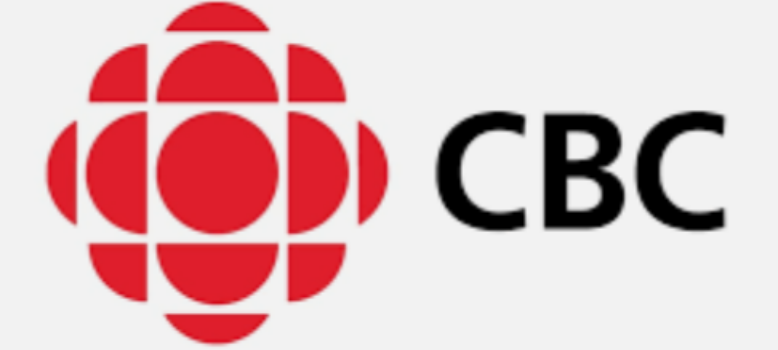
CBC: “We’re Moving To A Digital First Model Because Terrestrial TV/Radio are Dead AF

If you missed CBC’s announcement this morning, you missed a SEISMIC Admission:
CBC CEO Tait announced Canada’s National Broadcaster is done with traditional broadcasting. They are moving to “DIGITAL FIRST STREAMING CONTENT” because Radio and tv are DEAD.
She’s the first MSM ceo to shit on MSM dead tech delivery. It’s a pretty big deal. She just said the quiet part out loud.
— Dean Blundell🇨🇦 (@ItsDeanBlundell) February 7, 2023
Toast.
Finished.
Fake news.
Useless.
DONE.
The Globe And Mail: The head of the CBC says it is preparing to end traditional TV and radio broadcasts and move completely digital, as audiences shift to streaming, but the move is unlikely to happen over the next decade.
(it will happen in less than five years)
In an interview with The Globe and Mail, Catherine Tait, president and CEO of the CBC, said the broadcaster is eventually preparing to shift all its content to online-only “in order to remain relevant.”
She said more and more Canadians are moving to streaming while the CBC is “sitting here loyally broadcasting over the airwaves.“
“If we’re going to be audience first we have to be digital first,” she said. “We get up every day and say, ‘What do our audiences want, and where are they?’ And they’re on digital in increasing numbers. And so if we are not there we’re no longer relevant.”
Catherine Tait is a courageus person. “Go where the audience is” isn’t a genius revelation. Still, she’s the FIRST CEO of MSM in Canada to admit the ONE thing we all knew: Taridiontal media assets are fucking USELESS. No matter how hard BELL, ROGERS, CORUS, and Quebecor try to convince you to funnel you into their ecosystem of dead technology, on-demand is King, and it’s time to bury the dead.
OF COURSE, a CBC CEO broke the seal on the conversation. They don’t serve shareholders and won’t see their stock price of overvalued dead technology nose dive into the earth’s crust.
Ms. Tait said “the core audience for television is 55 plus, or like 65 plus, so young people and diverse newcomers to Canada … they’re online.”
Her comments followed the disclosure in December by Tim Davie, director-general of the BBC, that Britain’s public broadcaster is preparing to become an online-only service in the next decade.
Ms. Tait said in Canada the shift is unlikely to happen so soon as it requires “broadband ubiquity” to ensure that all Canadians – regardless of where they live or their socioeconomic status – have good enough internet to stream programs and films.
Ms. Tait hit back at the Conservative campaign to strip the CBC of public subsidy, saying its “defund the CBC” campaign was a tactic to solicit donations.
“They have an online fundraising campaign, which very specifically says ‘We’ll save you a billion dollars, please send in $20.’ ” In 2022, the CBC received $1.24-billion from the government – 66 per cent of CBC/Radio-Canada’s funding.
She accused Tory Leader Pierre Poilievre of inciting attacks on the broadcaster, saying, “There’s a lot of CBC bashing going on – somewhat stoked by the Leader of the Opposition.”
“I think they feel that CBC is a mouthpiece for the Liberal government,” she said.
“We don’t want to drag Canadians to digital. They are dragging us,” said Ms. Tait, who, before taking the top job at the CBC, set up the digital content provider iThentic. “We saw it in the pandemic, subscriptions to streaming go way up and those people don’t go back to conventional television.”
Finally.
How many of you listened to “radio” in the GTA this week?
How many of you picked up a Newspaper?
And how many of you sat down to the evening news with your family after a delicious meatloaf dinner this year?
The answer? Maybe 1/10th of the population.
Habits have changed for good. We’re not going back to trying to look for a radio signal on a long drive. We don’t flip through channels looking for something to watch. Not in the on-demand era.
We access content we consume SO much differently than we did 20 years ago. Accessing content has changed WHO we are and HOW we do what we do. The smart play is to cater to that instead of fighting against it.
CBC just announced they are leaving Traditional media (Radio/TV) for digital streaming pastures. LFG. pic.twitter.com/9KsAR8LQ9R
— Dean Blundell🇨🇦 (@ItsDeanBlundell) February 7, 2023
Forcing people to access information in a traditional sense isn’t just inconvenient – most of us don’t understand it anymore.
Why would you let CTV tell you when you can watch what you want in your living room at a specific time when you don’t have to?
Why would you want to be forced to listen to watered-down appointment radio when you don’t have to?
And who the fuck wants to carry around one newspaper when you can access all of them on your phone?
Broadcasters have been trying to tell us their sky isn’t falling for the past ten years when truthfully, they’ve been hiding in their dictatorial money bubbles. They’ve ignored the notion that digital on-demand content is cheaper, more effective, and highly targeted and independent content providers do everything they do.
Until today.
Catherine Tait just rang a bell that can’t be unrung.
When the CEO of the BIGGEST broadcaster in Canada says, “we’re turning out the lights on traditional broadcasting assets in the next ten years,” every other MSM CEO with dead broadcasting assets shits their pants because it’s antithetical to their messaging, and it prevents advertisers from buying those dead assets as solutions. Which they should.
We work with a few broadcasters on that transition from traditional to digital, and when you get the decisions makers in a room, they repeat Catherin Tait’s messaging in the form of a question:
“So what do we do?”
Five years ago, the VP of Radio at ROGERS offered me a job. She rescinded the offer a few weeks later because she was being sued by the guy they wanted me to replace.
“We want to stay in contact, though, because there are other opportunities we’d love to share with you.”
“I’m good.” I said.
“I’m going to go where everyone will be in 5 years instead. But thanks.”
Since then, I’ve been offered several radio jobs, but after 2-3 conversations, the opportunity dries up for one reason.
They still think Radio works and pretend on-demand digital content doesn’t exist.
It does, but not like it used to. That purpose is gone. And no one wants to invest in digital properties they don’t have or reverse engineer digital-first content FOR traditional assets because “it’s too hard and too expensive.”
But here’s the thing: They don’t have a choice. Habits, tech, and algorithms have rewired us into entitled content consumers who want you to deliver your content TO them. And they want that content to be excellent. Unless they have content to send people online, their purpose is to play the music you might want to hear.
Not a great model with any upside.
“Excellent content” doesn’t exist in traditional media anymore because people who know what they are doing do it for themselves or with others (digital hosts/ecosystems) who believe in their content. Traditional assets only believe in their brand, and protecting that brand matters more than the people who make it great.
Interesting.
— Max Fawcett 🇨🇦 (@maxfawcett) February 7, 2023
THOSE people left and figured it out on their own, and in an on-demand world, that isn’t good for traditional media. Not only does their 200-year-old content delivery suck ass, but the best content providers don’t work for them anymore.
That’s what Catherine is saying. That’s what I’ve been saying, and that’s the objective reality. Big Media (MSM) shit where they ate, ignored human beings and trends and crushed themselves. Now they have to admit defeat and do the right thing, which started this morning with CBC telegraphing the abandonment of traditional media OUT LOUD.
We’re in the end times of traditional media. If you wait long enough, you might be able to buy your favorite radio station on Kijiji as long as you commit to taking on their debt and 20k a month in transmitter costs.
Or you can do it for free from your living room with us. It’s up to you.
DB
Dean Blundell
Dean Blundell is a Canadian radio personality. Best known as a longtime morning host on CFNY-FM (The Edge) in Toronto, Ontario. In 2015 he was named the new morning host on sports radio station CJCL (Sportsnet 590 The Fan). Dean started his career in radio in 2001 and for nearly 20 years been entertaining the radio audience. Dean’s newest venture is the launch of his site and podcast which is gaining tremendous momentum across North America.







